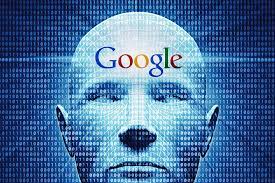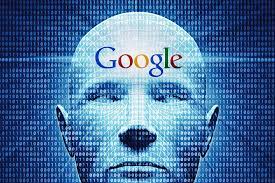
Google Inc.'s Google is introducing more artificial intelligence into its core search product in an effort to match the customer fervour that Microsoft Corp.'s recent update to rival search engine Bing produced.
Google unveiled a new iteration of its name-brand engine on Wednesday at its yearly I/O conference in Mountain View, California. The updated Google, known as the Search Generative Experience, can create answers to open-ended searches while keeping its well-known list of Web links.
"We are reimagining all of our core products, including search," Sundar Pichai, Alphabet's CEO, said after he took the stage at the event.
He said that Google is incorporating generative AI into search as well as in services like Gmail, which can draught messages, and Google Photos, which can edit photographs by centering objects and filling in blank spaces, among other things.
Shares of Alphabet increased 4% on Wednesday. Compared to the 8% increase in the S&P 500 index during the same period, they had increased by 26% so far this year.
According to Vice President Cathy Edwards, U.S. users will have access to the Search Generative Experience via a wait list in the upcoming weeks. During the trial period, Google will evaluate the value, timeliness, and cost of search results.
Google's entry into the field of "generative AI" comes after firm OpenAI unveiled ChatGPT, the Silicon Valley darling chatbot that sparked a frantic financing race among would-be rivals. Using historical data, generative AI can produce completely original content, such as fully formed text, graphics, and software code.
Many now use OpenAI as their default generative AI system because it is supported by Microsoft with billions of dollars and is now a part of Bing search. Users may create term papers, contracts, trip plans, and even complete novels with its assistance.
Since competitors started utilising the technology, Google, which has long been the leading online portal, has found its throne under jeopardy.
Google's share of the enormous internet advertising pie, which research group MAGNA projected to be worth $286 billion this year, is at risk.
"AI can provide insight," Edwards said. "But what fundamentally people want at the end of the day is to be connected to information from real people and organizations, knowing, for example, that this health information comes from the WHO," or the World Health Organization.
When asked about how AI can present false information, Edwards responded that the organisation gave priority to accuracy and quoting reliable sources.
Additionally, Google will mark up the AI-generated photos it produces to make it simpler for users to verify an image's legitimacy.
"Google's vision makes a strong case that search is evolving, not dissolving, and that Google is here to stay," said Canaccord Genuity analyst Kingsley Crane.
Google still appears and behaves like its recognisable empty search bar even with the inbuilt AI.
A test for Reuters earlier this week showed that although a search for "weather San Francisco" will often direct a user to an eight-day forecast, a question asking what to wear in the California metropolis triggers an extensive response produced by AI.
The enormous cost of using such AI, often known as huge language models, presents a difficulty. According to Edwards, "We and others are working on a variety of different ways to bring the cost down over time."
According to Edwards, advertising will continue to be important. "We are only compensated when a click occurs."
Running Point Capital Advisors' chief investment officer, Michael Ashley Schulman, stated: "The company is showing a willingness and ability to reinvent and disrupt itself, which I feel will be favourably received by investors."
Google's competitors have recently surpassed their creators by incorporating their research achievements into goods.
After Google unveiled an AI system in 2017, ChatGPT became known. The chatbot grew more quickly than any consumer application in history, which inspired the frequently deliberate Google to pressure personnel to complete projects more quickly.
Google unveiled Bard, a rival chatbot, in February. A stock slide caused by a promotional film in which Bard answered a question wrong that month reduced Google's market value by $100 billion.
The business announced on Wednesday that Bard will now be multimodal like OpenAI's GPT-4, making the chatbot available to users in more than 180 nations and territories.
Customers will be able to ask Bard questions using visuals instead of simply words, the company stated, such as asking the chatbot to add a caption to a photo they have in their possession.
Behind Bard is also a more potent AI model Google unveiled under the name PaLM 2, which it claimed could handle more challenging issues. Pichai added that one of its PaLM 2 devices is portable enough to operate on cellphones.
In additional I/O news, Thomas Kurian, CEO of Google Cloud, told Reuters that the business is queuing up clients to test its most recent technology, including Deutsche Bank AG and Uber Technologies Inc.
Additionally, Google unveiled a brand-new Pixel smartphone that can fold up and use artificial intelligence. To begin with, the phone will cost $1799 and include a free Pixel Watch. In addition, Google announced the Pixel 7A, a $499 phone that will go on sale on Wednesday.
(Source:www.theprint.in)
Google unveiled a new iteration of its name-brand engine on Wednesday at its yearly I/O conference in Mountain View, California. The updated Google, known as the Search Generative Experience, can create answers to open-ended searches while keeping its well-known list of Web links.
"We are reimagining all of our core products, including search," Sundar Pichai, Alphabet's CEO, said after he took the stage at the event.
He said that Google is incorporating generative AI into search as well as in services like Gmail, which can draught messages, and Google Photos, which can edit photographs by centering objects and filling in blank spaces, among other things.
Shares of Alphabet increased 4% on Wednesday. Compared to the 8% increase in the S&P 500 index during the same period, they had increased by 26% so far this year.
According to Vice President Cathy Edwards, U.S. users will have access to the Search Generative Experience via a wait list in the upcoming weeks. During the trial period, Google will evaluate the value, timeliness, and cost of search results.
Google's entry into the field of "generative AI" comes after firm OpenAI unveiled ChatGPT, the Silicon Valley darling chatbot that sparked a frantic financing race among would-be rivals. Using historical data, generative AI can produce completely original content, such as fully formed text, graphics, and software code.
Many now use OpenAI as their default generative AI system because it is supported by Microsoft with billions of dollars and is now a part of Bing search. Users may create term papers, contracts, trip plans, and even complete novels with its assistance.
Since competitors started utilising the technology, Google, which has long been the leading online portal, has found its throne under jeopardy.
Google's share of the enormous internet advertising pie, which research group MAGNA projected to be worth $286 billion this year, is at risk.
"AI can provide insight," Edwards said. "But what fundamentally people want at the end of the day is to be connected to information from real people and organizations, knowing, for example, that this health information comes from the WHO," or the World Health Organization.
When asked about how AI can present false information, Edwards responded that the organisation gave priority to accuracy and quoting reliable sources.
Additionally, Google will mark up the AI-generated photos it produces to make it simpler for users to verify an image's legitimacy.
"Google's vision makes a strong case that search is evolving, not dissolving, and that Google is here to stay," said Canaccord Genuity analyst Kingsley Crane.
Google still appears and behaves like its recognisable empty search bar even with the inbuilt AI.
A test for Reuters earlier this week showed that although a search for "weather San Francisco" will often direct a user to an eight-day forecast, a question asking what to wear in the California metropolis triggers an extensive response produced by AI.
The enormous cost of using such AI, often known as huge language models, presents a difficulty. According to Edwards, "We and others are working on a variety of different ways to bring the cost down over time."
According to Edwards, advertising will continue to be important. "We are only compensated when a click occurs."
Running Point Capital Advisors' chief investment officer, Michael Ashley Schulman, stated: "The company is showing a willingness and ability to reinvent and disrupt itself, which I feel will be favourably received by investors."
Google's competitors have recently surpassed their creators by incorporating their research achievements into goods.
After Google unveiled an AI system in 2017, ChatGPT became known. The chatbot grew more quickly than any consumer application in history, which inspired the frequently deliberate Google to pressure personnel to complete projects more quickly.
Google unveiled Bard, a rival chatbot, in February. A stock slide caused by a promotional film in which Bard answered a question wrong that month reduced Google's market value by $100 billion.
The business announced on Wednesday that Bard will now be multimodal like OpenAI's GPT-4, making the chatbot available to users in more than 180 nations and territories.
Customers will be able to ask Bard questions using visuals instead of simply words, the company stated, such as asking the chatbot to add a caption to a photo they have in their possession.
Behind Bard is also a more potent AI model Google unveiled under the name PaLM 2, which it claimed could handle more challenging issues. Pichai added that one of its PaLM 2 devices is portable enough to operate on cellphones.
In additional I/O news, Thomas Kurian, CEO of Google Cloud, told Reuters that the business is queuing up clients to test its most recent technology, including Deutsche Bank AG and Uber Technologies Inc.
Additionally, Google unveiled a brand-new Pixel smartphone that can fold up and use artificial intelligence. To begin with, the phone will cost $1799 and include a free Pixel Watch. In addition, Google announced the Pixel 7A, a $499 phone that will go on sale on Wednesday.
(Source:www.theprint.in)














